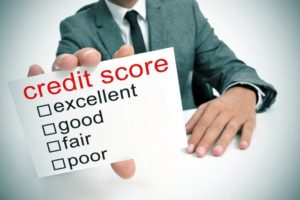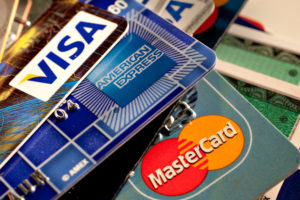 With the world mostly preferring making transactions electronically, credit card fraud, in turn, has increased in frequency. The possibility of being a victim of this crime only increased, with the use of online shopping being more and more widespread. The average person never sees this coming; never acknowledges the potential victimization that might occur when one isn’t careful with your credit card usage, and often times, the recognition of the incident comes a little too late. Be sure to watch out for early warning signs that signify you may be a victim or a target of this terrible crime:
With the world mostly preferring making transactions electronically, credit card fraud, in turn, has increased in frequency. The possibility of being a victim of this crime only increased, with the use of online shopping being more and more widespread. The average person never sees this coming; never acknowledges the potential victimization that might occur when one isn’t careful with your credit card usage, and often times, the recognition of the incident comes a little too late. Be sure to watch out for early warning signs that signify you may be a victim or a target of this terrible crime:
Lost or Stolen Credit Cards
The easiest way for thieves to use your credit card without permission is if they physically have it. If you lost a card or had your wallet stolen, it’s best to inform your bank right away in order to avoid being a victim of fraud.
Your Credit Card Statement
Check your credit card statement thoroughly. If you see any sort of transaction you’re quite certain you didn’t make, then most likely someone else has managed to get ahold of your credit card information.
Dubious Websites
If you do discover that you have certain transactions in your statement that don’t belong to you, think back if you’ve made certain credit card transactions online. If you’ve been into online shopping, check the site you made your purchase at. If this site seems to be insecure, there’s a chance that your information may have been illegally obtained. Always go for sites that are secure, has contact numbers and physical addresses written.
Unknown Items Delivered to Your Doorstep
If you have items you didn’t order that get delivered to your billing address, then it’s highly possible that someone else ordered these using your card. Don’t dismiss this as some form of mix up. This happens more commonly than most people think. Thieves usually place an order online using your card while giving a different mailing address than the billing address. If there are complications with the mailing address, sometimes the protocol is to deliver the package to the billing address. You’re not getting a free item. It’s something you’ve already paid for—you just didn’t know it.
Security Software, or Lack Thereof
If you have a computer that doesn’t have protection from malicious software, then don’t be surprised if you fall victim to credit card fraud. Malicious software like spyware allows unsavory characters to obtain your personal information. To avoid this, be sure your machine has up-to-date privacy software to avoid this.
Weird Money-Related Communications
If you get an increased number of e-mails or phone calls from merchants offering you new items or charitable institutions soliciting from you, particularly the ones you don’t remember associating with anyway, there’s a big chance a thief might have tested your card in these organisations. Thieves would normally make small purchases or small donations to try out if a card is good before they risk using it on bigger purchases.
Putting yourself in a vulnerable situation wherein fraud is possible should definitely be avoided. If you suspect that fraudulent activity is about to happen or is already happening involving you and your credit card account, report this activity as soon as possible to minimise or avoid damage—before you find your account completely cleaned out.



